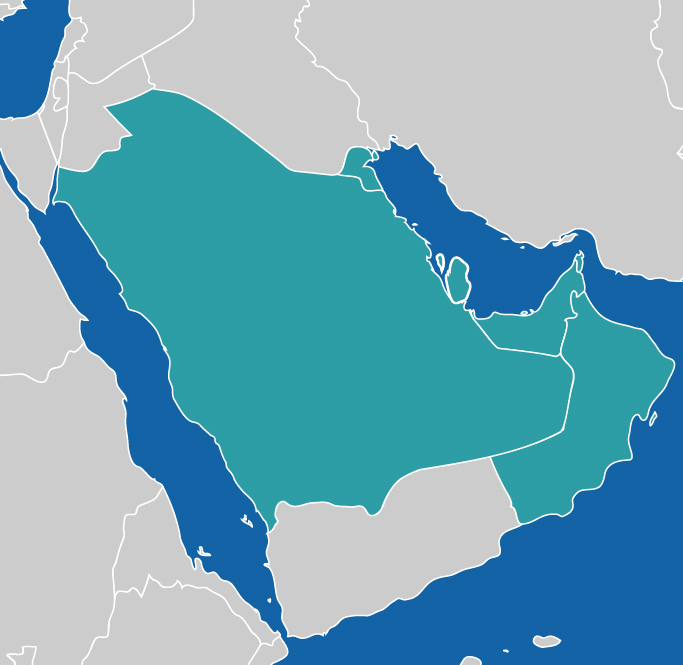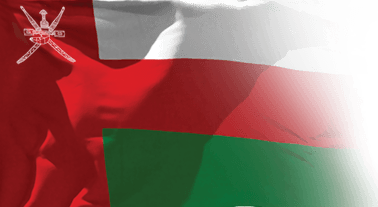
Gulf-European Summit: Present and Future
The first ever summit between the Gulf Cooperation Council and the European Union takes place on October 16 in Brussels. Leaders from the EU and GCC countries will come together in another milestone in their developing relationship. So what is the background and what are the central themes of the summit?
What are the GCC and the EU?
The Gulf Cooperation Council (GCC) is a political and economic alliance of six Arabian Gulf countries – Bahrain, Kuwait, Oman, Qatar, Saudi Arabia and the United Arab Emirates.

It was established in 1981, headquartered in Riyadh, Saudi Arabia, to achieve wide ranging collaboration and coordination among its members based on their common objectives and their similar political and cultural identities. The GCC countries have formed their own customs union and a common market, allowing the free movement of goods and services providing a major boost to the Gulf economy.
The European Union (EU) is an economic and political union between 27 European countries headquartered in Brussels, Belgium.

It has its roots in treaties signed by six countries in the aftermath of the Second World War. Since then, 22 more countries have joined (the United Kingdom left in 2020).
It is now the world’s biggest single market and trading bloc with freedom of movement for goods, services and workers. This has proved a major factor in the growth of the EU as an economic bloc.
How are relations between GCC and EU?
Relations between the GCC and the EU are strong and growing stronger – both politically and economically.
Formal relations were established by a 1989 Cooperation Agreement to promote their economic development, creating jobs and prosperity.
The EU-GCC Joint Cooperation Committee meets annually in Riyadh or Brussels to discuss trade, investment and regional cooperation. Foreign Ministers of both blocs last met in 2023 in Muscat to further consolidate their partnership.
There are now growing hopes that negotiations towards a job-creating Free Trade Agreement (FTA) that were suspended in 2008 might be reopened.
In 2022, the EU said changes in the societies and economies of the GCC countries offer a wide range of opportunities for cooperation and investment.
These opportunities are based on the ambitious transformative plans of the GCC countries – like Oman Vision 2040 – focusing on green transition, economic diversification and social reforms.
Talks continue to try to reach agreement on visa-free entry and freedom of movement within the EU for all GCC citizens.
International developments including the Israeli aggression in Gaza and Lebanon and the war in Ukraine will also be the subject of intense discussions.
GCC countries will be looking for the clearest possible support for a ceasefire in Gaza and Lebanon, the opening of humanitarian aid routes and a commitment to a two-state solution creating an independent Palestinian state as the only solution that can secure lasting peace for the region.
Why is GCC-EU trade important?
In 2022, the GCC’s combined GDP was over $2tn. The EU’s was over $16tn. (A trillion is 1,000 billion.)
Together the EU and the GCC represent 20% of the global economy.
The two blocs account for 17.5% of global trade and more than half of global foreign direct investments.
2023 Trade Figures:
- GCC exports to EU – $83.7bn
- EU exports to GCC – $102.9bn
- Total: $186.6bn
Any agreements that help increase trade further would be of enormous significance – creating new jobs and raising prosperity across the region.
What kind of goods and services are traded between GCC and EU?
Main EU exports to the GCC, 2021:
Main GCC exports to EU, 2021:
Progress towards a Free Trade Agreement?
This week’s summit will be an unparalleled opportunity to breathe new life into the stalled FTA talks with potential advantages for boosting the economy and creating jobs by:
- Reducing customs duties
- Increasing the volume of investments
- Improving EU market access for products and services from the GCC countries.
With so much in common, analysts remain convinced that the two blocs should build on their sound economic, political and security relations to become ever more firmly committed partners.






